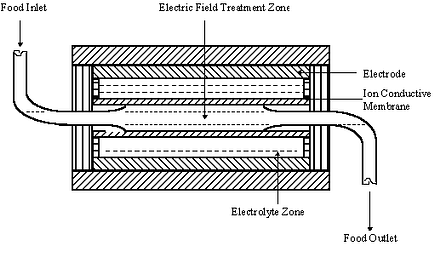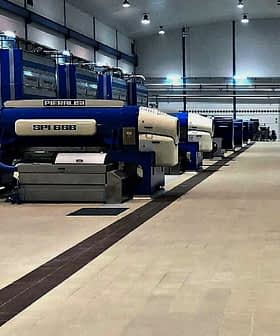‘Zapping’ olive paste via a non-thermal technology called pulsed electric fields (PEF) shows promise in improving virgin olive oil yield while reducing energy use and preserving quality, two European projects suggest.
PEF is already used in food processing for sterilization and preservation and has been shown to increase yields in the extraction of other juices, such as from oranges. Now research reveals its potential for making olive oil.
According to European Commission research portal CORDIS, the potential spin-offs from one recent EC-sponsored PEF project include reduction in olive paste temperature during processing, providing energy and time savings — compared to thermal or enzyme treatment — and improving oil quality while retaining yield. PEF also has potential to increase the oil’s phytonutrient content, “to improve consumer health benefits and olive oil shelf life,” CORDIS reports.
And last month in “Food and Bioprocess Technology”, scientists from Spain’s University of Zaragoza reported that their own studies had found that PEF allowed the use of lower temperatures during malaxation, the extraction stage where the oil droplets agglomerate.
This is important because higher temperatures increase oil yield but harm quality, and European Union regulations say that to use the term “first cold pressing” or “cold extraction”, the oil must be obtained at a temperature below 27°C (80 °F).
In their article, Effects of Pulsed Electric Field on Yield Extraction and Quality of Olive Oil, the researchers said they tested different intensities (0 – 2 kV/cm) of PEF on Arbequina olive paste with different malaxation times (0, 15, and 30 min) and temperatures (15 and 26°C).
They explained PEF as the application of direct current, high-voltage pulses, in short burts ranging between micro- and milliseconds.
In their tests, extraction yield improved 54 percent when the olive paste was treated with PEF (2 kV/cm) without malaxation.
When combined with malaxation at 26°C, PEF treatment did not increase the extraction yield compared with a control. But at 15°C, PEF of 2 kV/cm improved the extraction yield by 14.1 percent — corresponding to 1.7kg more oil per 100kg of olives.
Parameters such as for acidity, peroxide, K232 and K270 were not affected by PEF and a sensory analysis found no bad flavor or taste in the oil.
“The application of a PEF treatment could permit reduction of the malaxation temperature from 26 to 15°C without impairing the extraction yield,” the researchers said.









